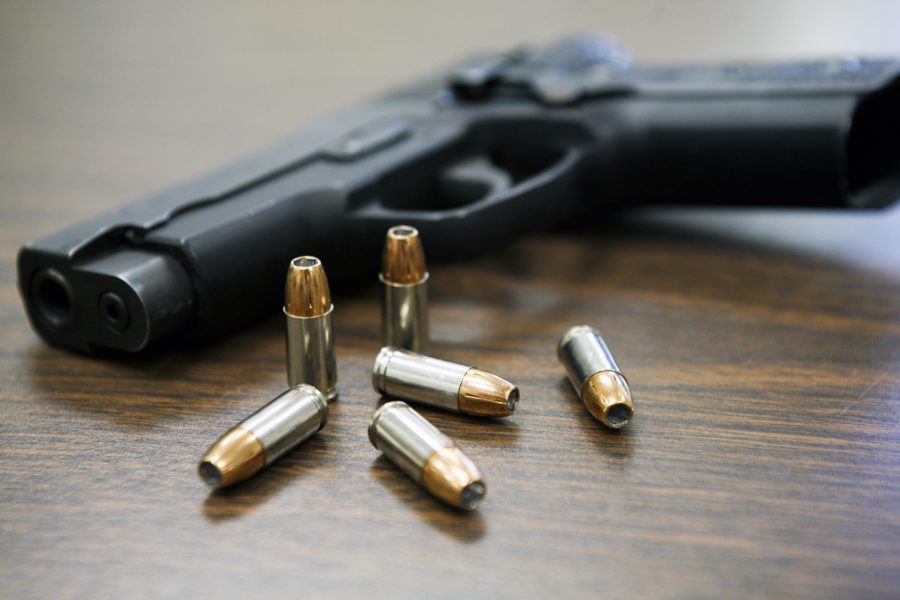Every year, an estimated 43.8 million adults experience mental health problems in America, which is roughly one person out of five. Some of the most common disorders include depression, anxiety and bipolar disorder. Less prominent disorders include obsessive-compulsive disorder (OCD), dissociative identity disorder and personality disorders. Mental health care costs America over 193 billion dollars per year, according to the National Alliance on Mental Illness — yet the topic is still often overlooked and widely misunderstood.
In recent years, mental health has been a source of discussion and controversy in Palo Alto. School board members base their campaigns on improving mental health awareness, and new district policies have revolved around reducing student stress in an attempt to decrease teen suicide. However, in mainstream media, mental health issues only seem to be brought up after instances of gun violence, as a way for gun rights advocates to avoid discussing policies for gun control. Although gun control and mental illness are both topics that need to be addressed, blaming gun violence on mental illness is both extremely misleading and stigmatizing for people with mental health issues — most of whom are not at all violent.
Mental illness has always had a stigma surrounding it, and to this day, many people feel a sense of shame when admitting that they see a therapist or take antidepressants. Words like “crazy”, “insane” and “psycho” are just a few examples of the way our society regards those with mental health issues. Although science has proven that mental illnesses are actually caused by chemical imbalances in the brain, many people still regard them as a sign of weakness or poor character. This stigma, unfortunately, means that many people who need these mental health services won’t seek them out, deciding instead to try to tackle the problem on their own, often with devastating consequences.
This stigma is made worse by the fact that mental illness has become increasingly associated with gun violence, despite the fact that “fewer than 5% of the 120,000 gun-related killings in the United States between 2001 and 2010 were perpetrated by people diagnosed with mental illness,” according to an article published in the American Journal of Public Health. Politicians from across the political spectrum have discussed the need for improved mental health services in America, but many of these conversations only occur in the aftermath of a shooting.
Blaming mental health issues for all gun-related deaths also disregards cases of unintentional shootings, domestic violence and substance abuse. Worst of all, it implies that gun control does not reduce shootings, which is actually very far from the truth.
It may appear to be an easy answer, but blaming mental illness for gun violence is an ineffective solution at best. At worst, it completely ignores the root cause of gun violence while further shaming an already-stigmatized community. While mental illness is a factor in some shootings, other components like easy access to automatic weapons, violent video games and unattainable expectations of masculinity in American society are also culpable. In fact, research from the American Journal of Public Health has shown that although mental illness is a leading cause of gun suicide, it is never the sole cause of gun homicide. Blaming mental health issues for all gun-related deaths also disregards cases of unintentional shootings, domestic violence and substance abuse. Worst of all, it implies that gun control does not reduce shootings, which is actually very far from the truth.
In a Center for Disease Control report that ranks the firearm mortality rate by state, Mississippi, Louisiana and Alaska had some of the highest mortality rates, while New York and Massachusetts had some of the lowest. Unsurprisingly, states like Louisiana also have very loose gun laws compared to New York, Massachusetts or Hawaii. While Louisiana has reduced sale of weapons to domestic abusers since 2014, the state still does not require firearm owners to have a gun license, or to register their weapons. State laws do not require background checks or limit the amount of firearms that can be purchased at once; and local governments are unable to regulate the sale of firearms. In contrast, Hawaii requires businesses to obtain a state license before selling firearms. Gun owners must also obtain a license, register their weapons, and follow child access prevention requirements before purchasing a weapon. In addition, open gun carrying is restricted and the sale of ammunition is regulated. As a result, Hawaii had the lowest rate of gun-related deaths in the country. If other states adopted similar gun laws, there is a potential decrease in mass shootings across the country.
This is not to say that improving mental health care in the United States is not necessary or important. However, it’s important to realize that improving mental healthcare and implementing better gun control laws are not mutually exclusive—both will improve the health and safety of American citizens. Improving mental health care alone will not solve this crisis—after all, it was never the problem.
